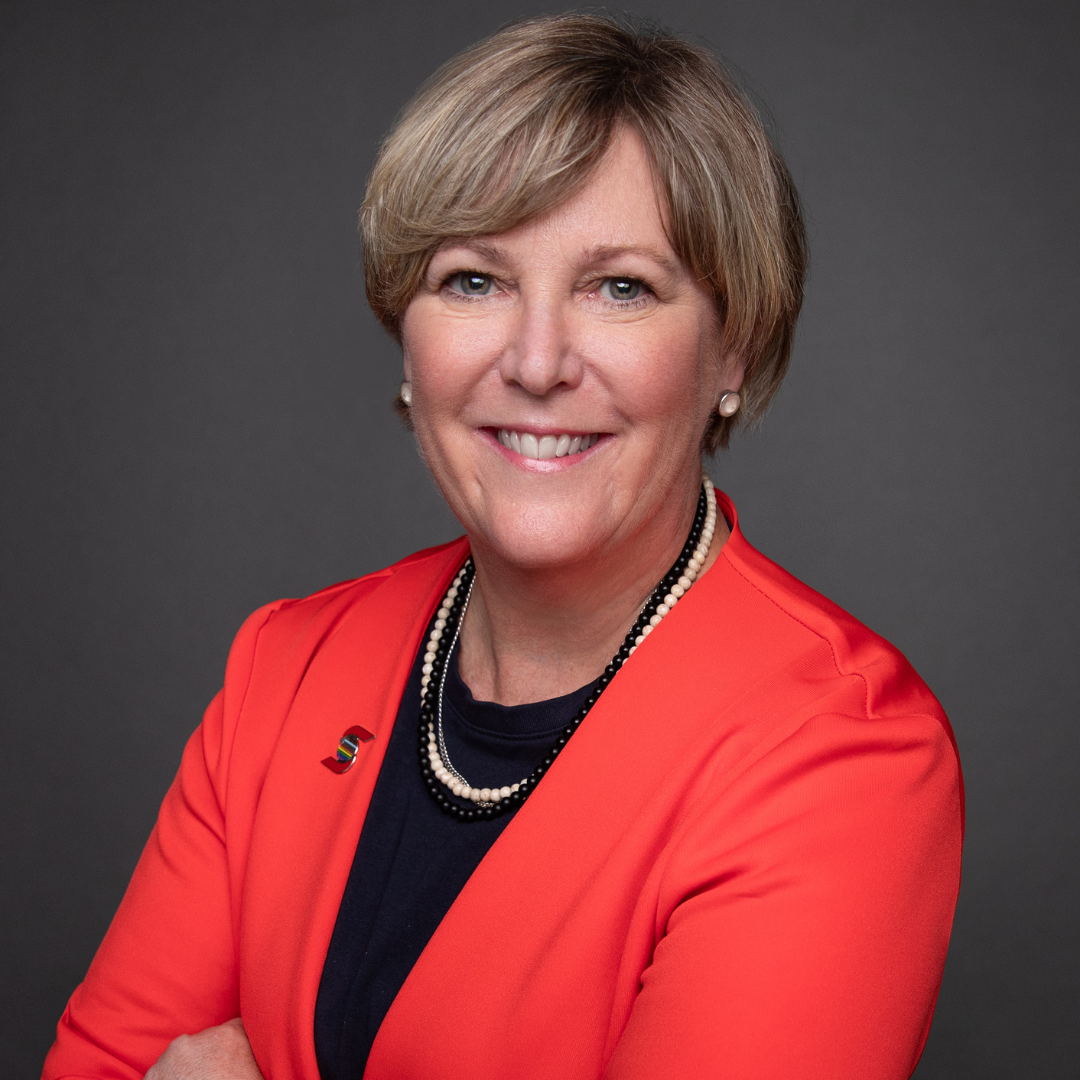2024…
How a Rural Upbringing Shaped This Scotiabank Leader’s Commitment to DEI
Sloane Muldoon, Senior Vice President of Global HR Solutions at Scotiabank, infuses her inclusive leadership with the authenticity and empathy of her rural upbringing.

By Sarah Walker
“Growing up in a rural area, there are some things you learn earlier than if you lived in the city,” says Sloane Muldoon, reflecting on her upbringing on a farm in southern Saskatchewan. Beyond learning to operate farm equipment, she gained a deep appreciation for hard work and developed a humbleness as a steward of the land, with a deep respect for the power of Mother Nature.
More importantly, Sloane learned the value of working with others and supporting those in need. In rural communities and small towns, you have to come together to make things happen and as you volunteer, you become embedded in the community.
These early lessons have informed Sloane’s career as a leader within Scotiabank and fuelled her passion for developing Diversity, Equity, and Inclusion (DEI) initiatives. Her dedication to these values is evident in her extensive contributions. She served as the Executive Sponsor and Co-Chair of the Scotiabank Women Initiative for three years and developed an Inclusion of Indigenous Peoples Centre of Excellence. Sloane also led various initiatives to support employees with disabilities and founded the Power of the Purse Luncheon in the Cayman Islands, which has since raised over USD $200,000 for victims of domestic abuse. She supported the expansion of the Scotiabank Global DEI Sponsorship Program, which paired mid-level employees from equity-deserving groups with senior-level employees who use their influence to enhance careers.
These highlights demonstrate Sloane’s unwavering commitment to creating inclusive environments and her ability to drive impactful change within the organization. Her efforts have not gone unnoticed; she was recently named the 2024 Employment Equity Champion by the Government of Canada, an award that acknowledges her significant contributions to employment equity. “I was shocked, honoured, and humbled by this recognition,” says Sloane. “I keep saying it’s a team award, not an individual award and one of my roles is to give people a seat at the table.”
For Sloane, the recognition is a testament to the collective effort and the power of allyship. She emphasizes the importance of support networks and paying it forward in her journey.
“I’ve always been an ally and had allies,” she shares. “Often, I was supported even before I knew I was being supported. You can make a significant impact by getting involved, leading the way, and paying it back to others who need to be pulled forward.”
As the Senior Vice President of Global HR Solutions at Scotiabank, Sloane adds, “I always say ‘nothing for us, without us’… for DEI initiatives to work and have an impact, we must ensure representation of equity-deserving groups throughout the process. They have to be involved and feel comfortable using their voice at the table.”
Sloane joined Scotiabank in 1991 after meeting individuals from the organization at a career fair. She was about to graduate from the University of Saskatchewan with a finance and healthcare administration degree and had desires of going to law school. After several interviews, Sloane, a fourth-generation client of the Bank’s at the time, chose to work at Scotiabank.
Since then, she’s moved 12 times and held progressively senior roles within the organization in Canada and the Caribbean. Sloane says she always seized career opportunities, even if that meant landing in Toronto “kicking and screaming because I wanted to stay in the Prairies.” She now coaches employees to stay curious about roles outside their comfort zone because that move led to international experiences and shaped the leader she is today.
“You want to put your hand up for things that go beyond your mandate so you can keep learning and progressing,” she says. As a coach, she often asks people whether they want a specialized or more general career. Either way, you have to “demonstrate that you want to take the lead beyond whatever your main mandate is… then you can champion yourself.”
Most importantly, you can also start to champion others. Sloane advocates for becoming a mentor when the time is right and for sponsoring employees wherever possible. “I’ve been blessed to have many mentors within my career,” she says. “Some relationships have been for a program, and others have ebbed and flowed. They’ve all helped me accomplish what I have to date.”
Her most successful relationships have been with mentors who are unlike herself. They challenged her ideas and were reciprocal. “I wasn’t good at being a mentee at first,” says Sloane. “I remember sitting in a senior colleague’s office, and he said, ‘Who do you need me to call and what do you need me to do?’ and I didn’t have an answer. When someone asks how they can help and advance your career, they’re coming from a genuine place of being action-oriented. That’s the purpose of a mentor-mentee relationship.”
Sloane emphasizes paying it forward, regardless of one’s position. She advises team members to learn and educate themselves on being good allies, and to get comfortable with the idea of making mistakes while starting critical DEI conversations or lifting others up. “It’s better to make mistakes than not have a conversation at all. It’s the small things that make a difference for others,” she advises. “One person can have a personal and professional impact. There is tremendous value in working with diverse teams and groups of people.”
Much like volunteering in a small town, Sloane concludes, “we all benefit when everyone has a seat at the table.”
2024…
Gallery: 2024 RBC Canadian Women Entrepreneur Awards Program
TORONTO,…
New Survey Findings Reveal the Financial Priorities and Challenges for Canadian Women
Eva…
Meet Eva Hartling, Founder of The Brand is Female: Empowering Women and Celebrated for Her Impact on Women in Leadership
By…
How This Scotiabank Leader Became Chile’s First Woman CFO in the Banking Sector
Chef…

